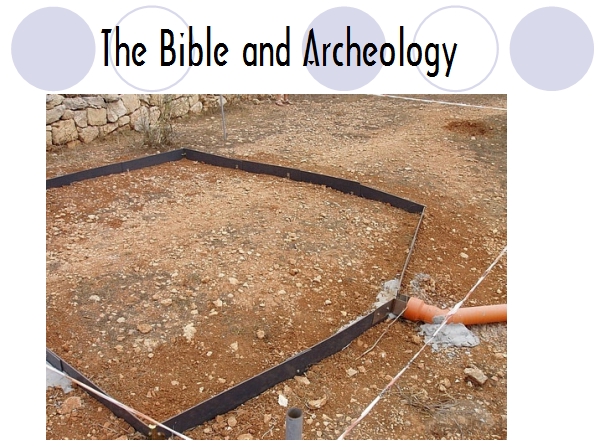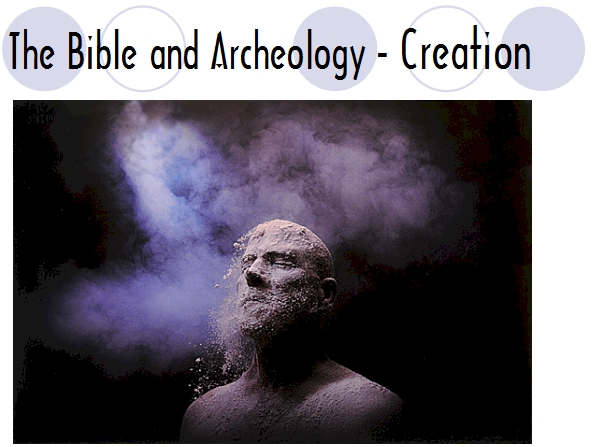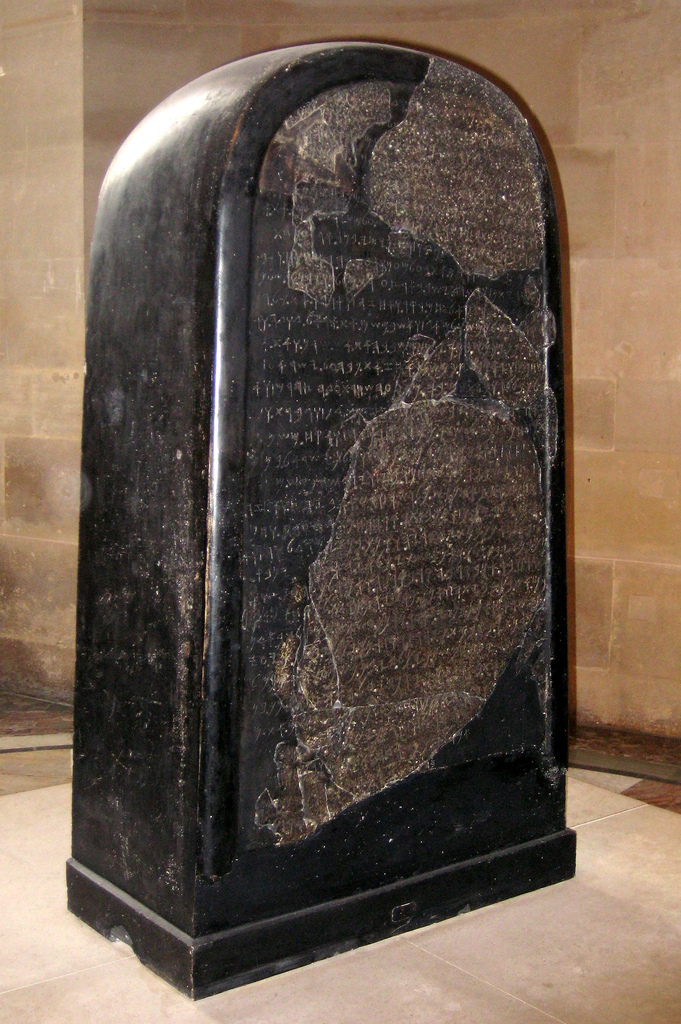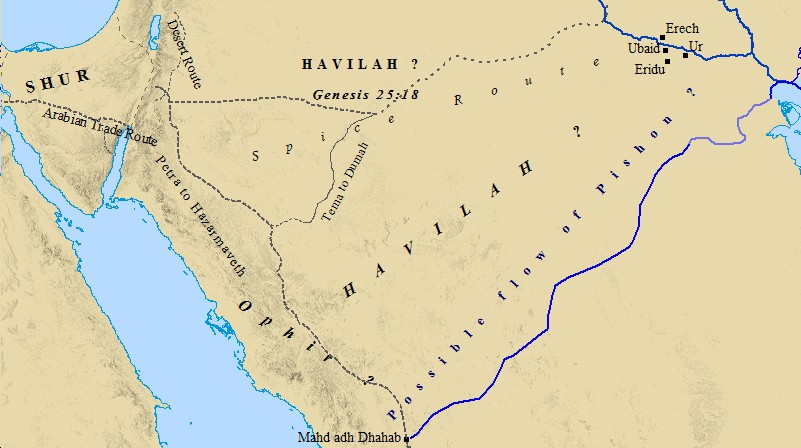|
Biblical
Archeology
Free to download and use in your local ministry

A Seven Course
Study by DPS
Complete with
downloadable teacher's guide, handouts, and PowerPoint presentations
Click here for
table of contents
The Lessons:
subscribers can click
pictures below for fully-scripted lessons
and all downloadable material
Introductory Lesson:

Sample...

Download: Teacher's Script: (PDF)
(Word) |
Handout: (PDF) (Word) |
PowerPoint
Overview
a.
Inscriptions and Writings:
The Mesha Stele
(Moabite Stone)
b.
Scripture Reading: Genesis 1
c.
Comparing Genesis 1&2 to other Mesopotamian Creation accounts
d.
Archeological discovery from above: Pishon River?
Discussion Questions
_______________________________
a.
Inscriptions and Writings:
The Mesha Stele
(Moabite Stone)
 Popularized in the 19th century as the "Moabite Stone,"
the Mesha Stele is a black
basalt stone, bearing an inscription by the 9th century BC Moabite
King Mesha, discovered in 1868 at Dhiban (biblical "Dibon," capital of
Moab). The inscription of 34 lines is written in the Moabite language.
It is the most extensive inscription ever recovered that refers to
ancient Israel. It was set up by Mesha, about 850 BC, as a record and
memorial of his victories in his revolt against the Kingdom of Israel,
undertaken after the death of his overlord, Ahab. Popularized in the 19th century as the "Moabite Stone,"
the Mesha Stele is a black
basalt stone, bearing an inscription by the 9th century BC Moabite
King Mesha, discovered in 1868 at Dhiban (biblical "Dibon," capital of
Moab). The inscription of 34 lines is written in the Moabite language.
It is the most extensive inscription ever recovered that refers to
ancient Israel. It was set up by Mesha, about 850 BC, as a record and
memorial of his victories in his revolt against the Kingdom of Israel,
undertaken after the death of his overlord, Ahab.
The stele, which measures 44"x27Ē, describes:
1. How Moab was conquered by Omri, King of Israel, as the result of
the anger of the god Chemosh. Meshaís victories over Omriís son
....
b.
Scripture Reading: Genesis 1
c.
Comparing Genesis 1 to other Mesopotamian
Creation accounts
Similarities and Differences with the Genesis Account
|
Similarities |
Differences |
|
(1) Both accounts speak of a time when the earth was without form
and void.
(2) Both accounts have a similar order of events in creation.
(3) Both accounts view humanityís purpose to be worshiping
God/gods
(4) Both creation accounts relate humans to God above animals.
(5) The number seven seems significant in both accounts (seven tablets and seven days of creation). |
(1) The Enuma Elish features several gods (polytheistic) while
Genesis mentions only one God (though God refers to Godself in the
plural in Gen 1:28 "let us make humans" which many Christians
take as an OT proof text for the doctrine of the Trinity).
(2) While the Enuma Elish does not separate spirit and matter, the
Genesis account carefully distinguishes between the two.
(3) The Enuma Elish features conflict and
violence among all characters, including the gods, while Genesis
portrays violence as sinful and only occurring in the human
community. |
THE NATURE OF THE TWO CREATION ACCOUNTS
|
GENESIS 1 |
GENESIS 2 |
|
The heavens and the earth are created in six days. |
Creation of the man and the woman (no time element mentioned). |
|
Shows humanity in its cosmic setting. |
Shows humanity as central to Godís purpose. |
|
A panoramic view of creation as a whole. |
A detailed view of one particular aspect of creation. |
|
Centers on God creating the heavens and the earth. |
Centers on humanity as the crowning of Godís creation. |
THE SIX DAYS OF CREATION
|
DAY 1: Light. |
DAY 4: Light-givers (Sun, moon & stars). |
|
DAY 2: Water & sky divided. |
DAY 5: Fish and birds. |
|
DAY 3: Land & Vegetation |
DAY 6: Land animals & man. |
d.
Archeological discovery from above: Pishon River?
And the Lord God planted a garden toward the east, in Eden; and there
He placed the man whom He had formed. (Genesis 2:8).
Now a river flowed out of Eden to water the garden; and from there
it divided and became four rivers. The name of the first is Pishon;
it flows around the whole land of Havilah, where there is gold. And
the gold of that land is good; the bdellium and the onyx stone are
there. And the name of the second river is Gihon; it flows around
the whole land of Cush. And the name of the third river is Tigris;
it flows east of Assyria. And the fourth river is the Euphrates.
(Genesis 2:10-14).
......

Discussion Questions:
How do you explain the
similarities between the ancient Middle Eastern creation accounts? Do
you believe that God's revealed truth to people other than our Jewish
forebears? Are the differences in the accounts significant in your
opinion? From the research presented here, you believe there is enough
indication that that the garden of Eden was a real place in our
geography and history? How important is it to your faith that the Garden
of Eden story is history rather than sacred story?
p>
|